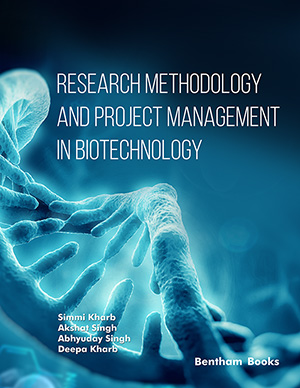
Abstract
Nanotechnology, or systems/devices manufactured at the molecular level, is a multidisciplinary scientific field undergoing explosive development. A part of this field is the development of nanoscaled drug delivery devices. Nanoparticles have been developed as an important strategy to deliver conventional drugs, recombinant proteins, vaccines and more recently nucleotides. Nanoparticles and other colloidal drug delivery systems modify the kinetics, body distribution and drug release of an associated drug. Other effects are tissue or cell specific targeting of drugs and the reduction of unwanted side effects by a controlled release. Therefore nanoparticles in the pharmaceutical biotechnology sector improve the therapeutic index and provide solutions for future delivery problems for new classes of so called biotech drugs including recombinant proteins and oligonucleotides. This review discusses nanoparticular drug carrier systems with the exception of liposomes used today, and what the potential and limitations of nanoparticles in the field of pharmaceutical biotechnology are.
Keywords: Nanobiotechnology, liposomes, nanoscaled drug
Current Pharmaceutical Biotechnology
Title: The Impact of Nanobiotechnology on the Development of New Drug Delivery Systems
Volume: 6 Issue: 1
Author(s): O. Kayser, A. Lemke and N. Hernandez-Trejo
Affiliation:
Keywords: Nanobiotechnology, liposomes, nanoscaled drug
Abstract: Nanotechnology, or systems/devices manufactured at the molecular level, is a multidisciplinary scientific field undergoing explosive development. A part of this field is the development of nanoscaled drug delivery devices. Nanoparticles have been developed as an important strategy to deliver conventional drugs, recombinant proteins, vaccines and more recently nucleotides. Nanoparticles and other colloidal drug delivery systems modify the kinetics, body distribution and drug release of an associated drug. Other effects are tissue or cell specific targeting of drugs and the reduction of unwanted side effects by a controlled release. Therefore nanoparticles in the pharmaceutical biotechnology sector improve the therapeutic index and provide solutions for future delivery problems for new classes of so called biotech drugs including recombinant proteins and oligonucleotides. This review discusses nanoparticular drug carrier systems with the exception of liposomes used today, and what the potential and limitations of nanoparticles in the field of pharmaceutical biotechnology are.
Export Options
About this article
Cite this article as:
Kayser O., Lemke A. and Hernandez-Trejo N., The Impact of Nanobiotechnology on the Development of New Drug Delivery Systems, Current Pharmaceutical Biotechnology 2005; 6 (1) . https://dx.doi.org/10.2174/1389201053167158
| DOI https://dx.doi.org/10.2174/1389201053167158 |
Print ISSN 1389-2010 |
| Publisher Name Bentham Science Publisher |
Online ISSN 1873-4316 |
Call for Papers in Thematic Issues
Artificial Intelligence in Bioinformatics
Bioinformatics is an interdisciplinary field that analyzes and explores biological data. This field combines biology and information system. Artificial Intelligence (AI) has attracted great attention as it tries to replicate human intelligence. It has become common technology for analyzing and solving complex data and problems and encompasses sub-fields of machine ...read more
Latest Advancements in Biotherapeutics.
The scope of this thematic issue is to comprehensively explore the rapidly evolving landscape of biotherapeutics, emphasizing breakthroughs in precision medicine. Encompassing diverse therapeutic modalities, the issue will delve into the latest developments in monoclonal antibodies, CRISPR/Cas gene editing, CAR-T cell therapies, and innovative drug delivery systems, such as nanoparticle-based ...read more
Machine Learning and Artificial Intelligence for Medical Data Analysis and Human Information Analysis in Healthcare
The intersection of machine learning (ML) and artificial intelligence (AI) with the pharmaceutical industry is revolutionizing traditional paradigms in drug discovery and development. These technologies have introduced innovative approaches to analyzing complex datasets and predicting chemical properties, leading to more efficient identification and optimization of drug candidates. By employing sophisticated ...read more
 65
65
- Author Guidelines
- Graphical Abstracts
- Fabricating and Stating False Information
- Research Misconduct
- Post Publication Discussions and Corrections
- Publishing Ethics and Rectitude
- Increase Visibility of Your Article
- Archiving Policies
- Peer Review Workflow
- Order Your Article Before Print
- Promote Your Article
- Manuscript Transfer Facility
- Editorial Policies
- Allegations from Whistleblowers
Related Articles
-
Diabetes in Ethnically Diverse Youth: Disparate Burden and Intervention Approaches
Current Diabetes Reviews Alopecia Areata
Recent Patents on Inflammation & Allergy Drug Discovery Preclinical Evidence for the Pharmacological Actions of Glycyrrhizic Acid: A Comprehensive Review
Current Drug Metabolism The Potential of Allergen Biochips
Recent Patents on Inflammation & Allergy Drug Discovery Formaldehyde Levels in Fabrics on the Ghanaian Market
Current Materials Science Exploring Scientific Validation of Millets in Contemporary Healthcare: A Traditional Food Supplement
Recent Advances in Food, Nutrition & Agriculture Meet Our Editorial Board Member
Combinatorial Chemistry & High Throughput Screening Cellular and Molecular Effects of Macrolides on Leukocyte Function
Current Pharmaceutical Design A Concise Review on the Role of Natural and Synthetically Derived Peptides in Colorectal Cancer
Current Topics in Medicinal Chemistry Negative Regulation of TCR Signaling in Immunological Tolerance: Taming Good and Evil
Current Immunology Reviews (Discontinued) <i>Abutilon indicum</i>: Bioactive Compounds and Diverse Therapeutic Applications
Current Nutraceuticals Host-Cell Surface Binding Targets in SARS-CoV-2 for Drug Design
Current Pharmaceutical Design Systems Medicine Approaches to Improving Understanding, Treatment, and Clinical Management of Neuroendocrine Prostate Cancer
Current Pharmaceutical Design Vascular Effects of Phytoestrogens and Alternative Menopausal Hormone Therapy in Cardiovascular Disease
Mini-Reviews in Medicinal Chemistry Recent Advances Using Phosphodiesterase 4 (PDE4) Inhibitors to Treat Inflammatory Disorders: Animal and Clinical Studies
Current Drug Therapy Inhibitory Role of Resveratrol in the Development of Profibrogenesis and Fibrosis Mechanisms
Immunology, Endocrine & Metabolic Agents in Medicinal Chemistry (Discontinued) Role of Hydrogen Sulfide in Systemic and Pulmonary Hypertension: Cellular Mechanisms and Therapeutic Implications
Cardiovascular & Hematological Agents in Medicinal Chemistry The Role and Impact of SNPs in Pharmacogenomics and Personalized Medicine
Current Drug Metabolism Trichinella spiralis and Tumors: Cause, Coincidence or Treatment?
Anti-Cancer Agents in Medicinal Chemistry Potential Genetic Therapies for Acute Lung Injury
Current Gene Therapy


























